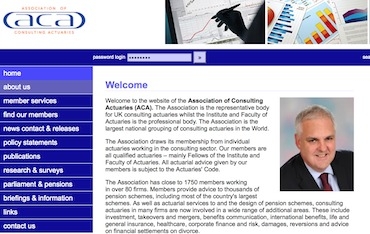Nearly six in ten employers support the idea of pension auto-escalation schemes, a study suggests.
The Association of Consulting Actuaries survey found 57% of employers backed the idea.
The scheme means members are encouraged to increase their rate of contributions at a future date often in line with increases in earnings.
Once signed up, an individual no longer has to take active decisions to increase their contributions.
Researchers reported that pension savings into workplace defined contribution schemes have largely flatlined over the last decade.
{desktop}{/desktop}{mobile}{/mobile}
Average rates of contribution are set to fall over the next few years because of low initial contributions in the Government's auto-enrolment scheme.
According to the survey, contribution rates are generally failing to keep pace with the pension costs of longer life-spans and an economic climate with low investment returns.
ACA Chairman Andrew Vaughan said: "With most employers seemingly auto-enrolling at the minimum level of contributions (2% of qualifying earnings), we can expect average contributions to decline over the next few years before climbing in 2018, when the minimum of 8% of qualifying earnings will be required in all firms."
He said auto-enrolment on its own is not enough and added the 'Save More Tomorrow' initiative, used in the USA, is worthy of consideration because increased contributions are essential as lifetimes in retirement extend.
He said: "With the State Pension Age moving towards 70 for today's younger employees, the added value of higher private pension savings is becoming clear. It is certainly time to save more for tomorrow."
Another finding of the survey was that eight out of ten smaller employers have not yet budgeted for the likely increase in costs arising from auto-enrolment.
Some 61% of employers expect their payroll costs to rise by up to 2% as a
result of auto-enrolment, but close to half of smaller employers (46%)
expect payroll costs to rise by more than this.
308 employers took part in the research, involving 430 pension schemes covering every size of business.

